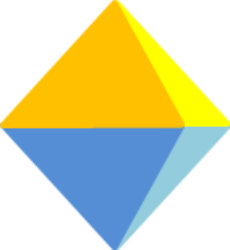The brain is a sponge to life and never saturates. As we understand it, the occurrence of learning is attributed to the development of neural connections. When the brain is stimulated or exercised, the number of existing neural connections increases. Although after the age of 20, the mass of the brain starts to decrease, new neural connections, or synapses, are still formed. Older synapses that are not stimulated can be weakened and lost.
For most, “learning” means the acquisition of skills (walking, speaking, reading, writing, mathematical operations, etc.). These abilities, aptitudes, and knowledge are forms of learning, or more aptly, objectives of learning – where a learning objective may become a form of learning when improving on existing skills (crawl before you walk, walk before you run, plié before you pirouette…).
In fact, learning is generated by most experiences (sensory perception, emotions, interpersonal relationships, and all kinds of activities). Learning is constant, whether for a newborn child or an experienced professional, although, the attitudes to learning, ways of learning, or cognitive styles are quite varied.
To a great extent, learning is automatic because it is constantly performed through the interaction of the individual with his or her environment and through the organization of sensory perceptions. In fact, most learning happens outside of formal education. Although, in no way should the importance of formal education for individual development be undermined.

The diagram represents continuing mental functions and actions that are internal to the learner during the learning process. There is screening at every step of this process in terms of learner acceptance and capabilities. The two flows from “Formal Intelligence” represent multiple tasks or multitasking and as such, shows the interdependencies and cyclical nature of the learning process (doing is learning and learning is doing).
However, this representation of how learning occurs does not detail alliterations in the learning process for differentiated learners (on the basis of age, mental development, experience, first timers or repeaters, intent, mental state, etc.).
Vygotsky suggests that learning is stimulated by tasks or challenges and occurs when assisted knowledge is internalized to elicit independent performance. His theory of cognitive development signifies the importance of the role of an adaptable caregiver or expert for the individual needs of different learners.

But, over time and space there have been many interpretations of the learning process; one interpretation may insist on differentiating us from other species, while another is simply, ‘monkey see, monkey do’. The truth is that learning is adaptive. The learning process accommodates necessity, survival instinct, and means of communication with objectives and structure – inherent or otherwise – and attaining this understanding helps in ascertaining learner orientation and communicating learning theory into design and practice.


Nice! Good stuff.
😊
Interesting read! 🙂 I always love to see ideas where learning is life-long, life-deep and life-wide. And lots of metacognition in the involve part – which often denotes the act of teaching. As I am currently learning more and more about Trauma-Informed Practices in education, I love to see an image like this where learning can be seen as a qualitative change in a person’s way of seeing and understanding and conceptualizing (quoting Paul Ramsden here :D).
Insightful comment! 😊 We are moving from pedagogy and andragogy to heutagogy (self-directed) and the diagram represents internal functions, that can be supported by “teaching”. I put that in quotes as the role of teachers is shifting to facilitator and guide. We need more trauma-informed educators and i’m happy you’re into it and learning more! Towards that end, do consider the concepts of cognitive balance and satisfaction economy. Here’s a link to a blog that introduces the concepts and provides links to more info, https://learningmedian.com/2024/03/04/discover-the-power-to-revolutionize-your-mind-our-society-and-our-economy-now/. And, thank you!